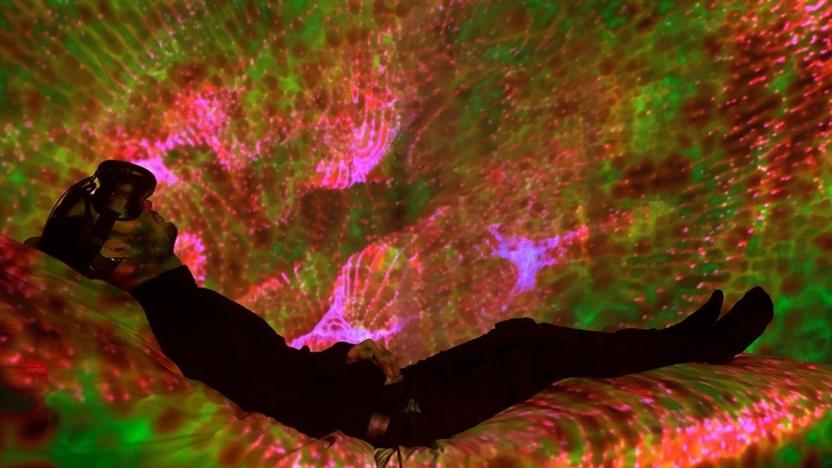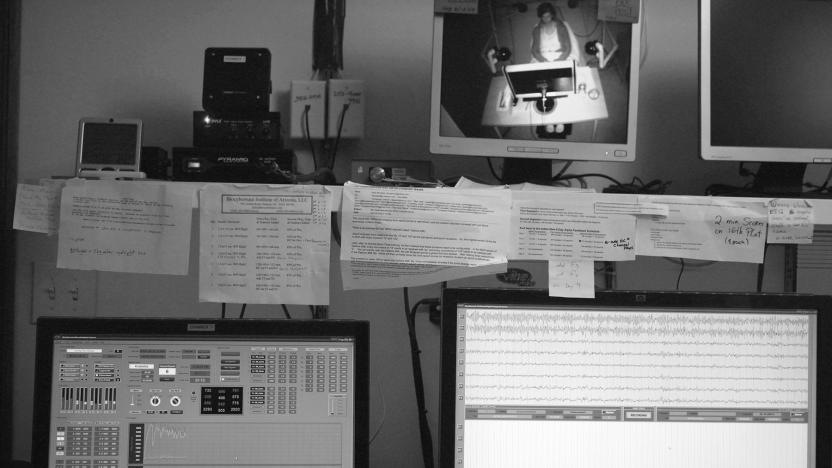neurofeedback
Latest

Brain-controlled VR lightshows could lull you to sleep
By most accounts, technology wreaks havoc on our sleep. Even tools meant to help us sleep better can make insomnia worse. But sleep and tech don't have to be mutually exclusive. Artists and researchers from Royal Melbourne Institute of Technology (RMIT) University have created a virtual reality tool to induce sleep. The device, Inter-Dream, combines ambient music controlled by artists with kaleidoscopic visuals controlled by the user's brainwaves, via EEG.

Hacking inner peace
1. Science class The principal calls this a mindful school. Johane Ligondé is effusively warm but with the kind of emotional solidity you'd expect from someone who wakes each morning to manage more than 1,000 kids at the only public middle school in the village of Freeport in Long Island, New York. She is also an aromatherapist and life coach who hangs a sign reading "I AM AN OPTIMIST" in her windowless office. At John W. Dodd Middle School, some of the students' primary struggles are common to many young teenagers: depression, anxiety, self-harm and the looming shadow of sudden violence. So every morning during homeroom, a student or staff member leads the entire building through eight minutes of breathing meditation over the PA system. In detention, students are "invited," Ligondé said, to do mindfulness exercises, "so it's not just a space for punishment, it's a space for reflection." A "social-emotional learning curriculum" has been introduced, teaching them conflict and relationship management.

BU wizards find success in unconscious neurofeedback learning, announce plans for secret lair
You will learn French this week, even if you're not aware that it's happening. Neuroscientists at Boston University have discovered that patients can quickly learn new skills while having their brain patterns modified via decoded functional magnetic resonance imaging. The group found that pictures gradually build up inside a person's brain, appearing first as lines, edges, shapes, colors and motion in early visual areas with the brain then filling in greater details as needed to complete the object. From there, a correlation was confirmed between increased visual learning and fMRI neurofeedback, repetitions of the activation pattern leading to long-lasting performance improvement. Interestingly, the approach worked even when test subjects were not aware of what they were learning... which is why that sweater you unconsciously knitted last night should fit Johnny Boy like a glove.


